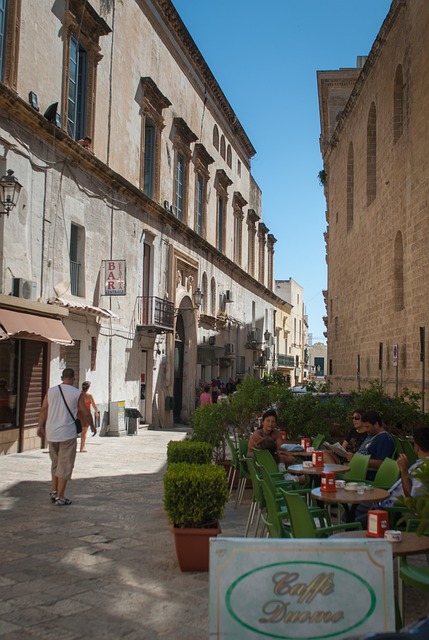riot nao abre 😎 Riot Não Abre: An Unfinished Dialogue on Social Justice and Urban Turmoil

Olá, amigos! O artigo de hoje vai aprofundar o tema riot nao abre, além de trazer informações sobre riot nao abre. Vamos nessa!
In recent months, the Brazilian urban landscape has been marred by escalating tensions and an alarming rise in civil unrest, the most notable manifestation being the protests dubbed "Riot Não Abre." This unrest is not merely a series of chaotic confrontations; instead, it marks a significant turning point in the civic and social dynamics of the nation. The slogan symbolizes not only the sentiment of discontent prevalent among marginalized communities but also invites deeper reflection on pressing issues that continue to propel protesters into the streets.
As crowds gather in various cities across the nation, the atmosphere is charged with fervor—a blend of anger, hope, and determination. This movement, sparked by a multitude of grievances, channels the frustrations of citizens who feel unheard and overlooked by those in power. Questions of social justice, systemic inequality, and governmental accountability are at the forefront of demonstrators' demands, resonating deeply within a society grappling with its internal contradictions.
Organizers and participants of Riot Não Abre come from all walks of life. They are fueled by a collective consciousness that has evolved over decades, with underlying issues manifesting in palpable ways. Environmental degradation, inadequate healthcare, insufficient access to quality education, and deep-rooted racial and economic inequalities have laid the groundwork for escalating dissatisfaction. This civil unrest acts as a mirror, reflecting the stark realities faced by a large segment of the population whose basic rights often go unaddressed.
At the heart of the protests lies the undeniable frustration with a political system perceived as corrupt and disconnected from the lived experiences of ordinary citizens. Many demonstrators express a feeling of betrayal, claiming that elected officials promise progress during campaigns but fail to follow through once in power. The sentiment that the political elite live in a different reality is palpable, with citizens demanding transparency, accountability, and genuine representation. The phrase "Riot Não Abre" underscores a clear message: the channels of communication between the governing bodies and the people must remain open and receptive.
While some narratives portray the protests as mere chaos, activists emphasize the need to view these demonstrations as a vital expression of civic engagement. The peaceful efforts to voice concerns often transform into clashes with law enforcement when communities feel their voices are being stifled. As tensions escalate, the media's role becomes critical in shaping public perception. Sensationalist representations can often overshadow the underlying issues prompting this unrest and divert attention away from constructive dialogue.riot nao abre

Riot Não Abre has also sparked discussions about the broader implications for Brazilian society. The protests carry with them a challenge to reconfigure social contracts and encourage participation in local governance. Solutions remain elusive, but the solidarity among participants hints at the potential for forging new alliances that can address deep-rooted grievances. The movement calls for creative engagement from policymakers, urging them to recognize that effective governance flourishes only when the voices of the disenfranchised are amplified and valued.
Isso levanta uma nova questão relacionada a riot nao abre, que vale a pena explorarmos mais a fundo.
Further complicating the matter is the question of intersectionality; while the common themes of social justice resonate throughout the protests, different demographics bear unique burdens. Women, racial minorities, and LGBTQ+ individuals often find themselves at the frontline of these movements, their struggles compounding the existing layers of societal inequities. The voices of these groups cannot be subdued in the narrative; they are integral to understanding the multifaceted nature of Brazilian society. riot nao abre

Moreover, amidst an ever-evolving socio-political landscape, there arises a responsibility for civil society to advocate for inclusive policies that can meet the diverse needs of the population. Community dialogues, workshops, and grassroots initiatives become essential avenues through which citizens can articulate their visions for a more equitable society. Collective empowerment must serve as a counterbalance to the polarizing forces within political discourse.riot nao abre
As Riot Não Abre continues to draw attention both nationally and internationally, it stands as a poignant reminder of the power of collective action in the face of adversity. No longer can the grievances of the populace be ignored or dismissed; the movement demands acknowledgment and resolution. It is a call for unity, encouraging all Brazilians to turn their focus toward building a just and inclusive society that reflects the voices of its citizens.riot nao abre
In a world marked by upheaval and uncertainty, the echoes of Riot Não Abre resonate loudly, urging an unfinished dialogue that may very well be the catalyst for transformative change. As the movement persists, it carries the hope that generations will remember this period not merely as a time of discord, but as a moment when the people rose to demand their rightful place in the narrative of their nation.riot nao abre
O artigo chega ao fim, esperamos que o conteúdo sobre riot nao abre e riot nao abre tenha sido satisfatório!
Fale conosco. Envie dúvidas, críticas ou sugestões para a nossa equipe através dos contatos abaixo:
Telefone: 0086-10-8805-0795
Email: portuguese@9099.com


